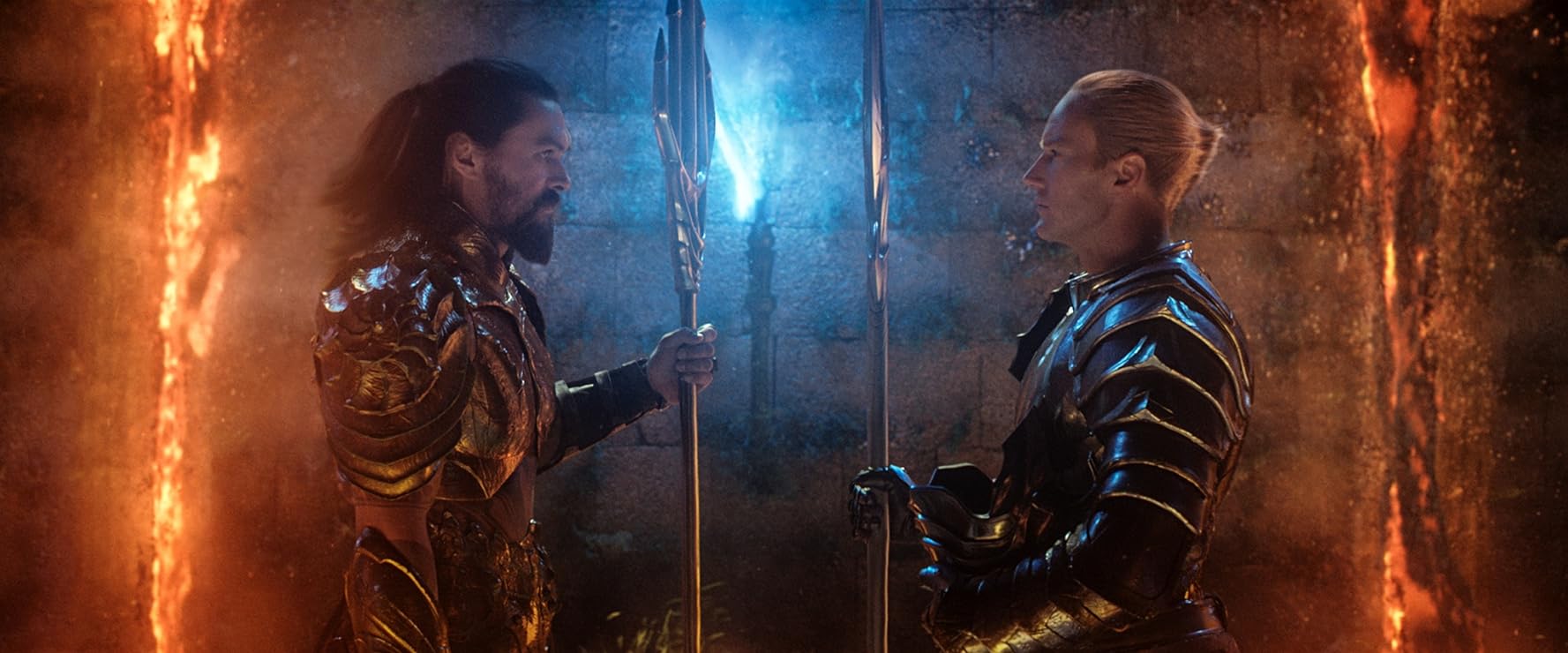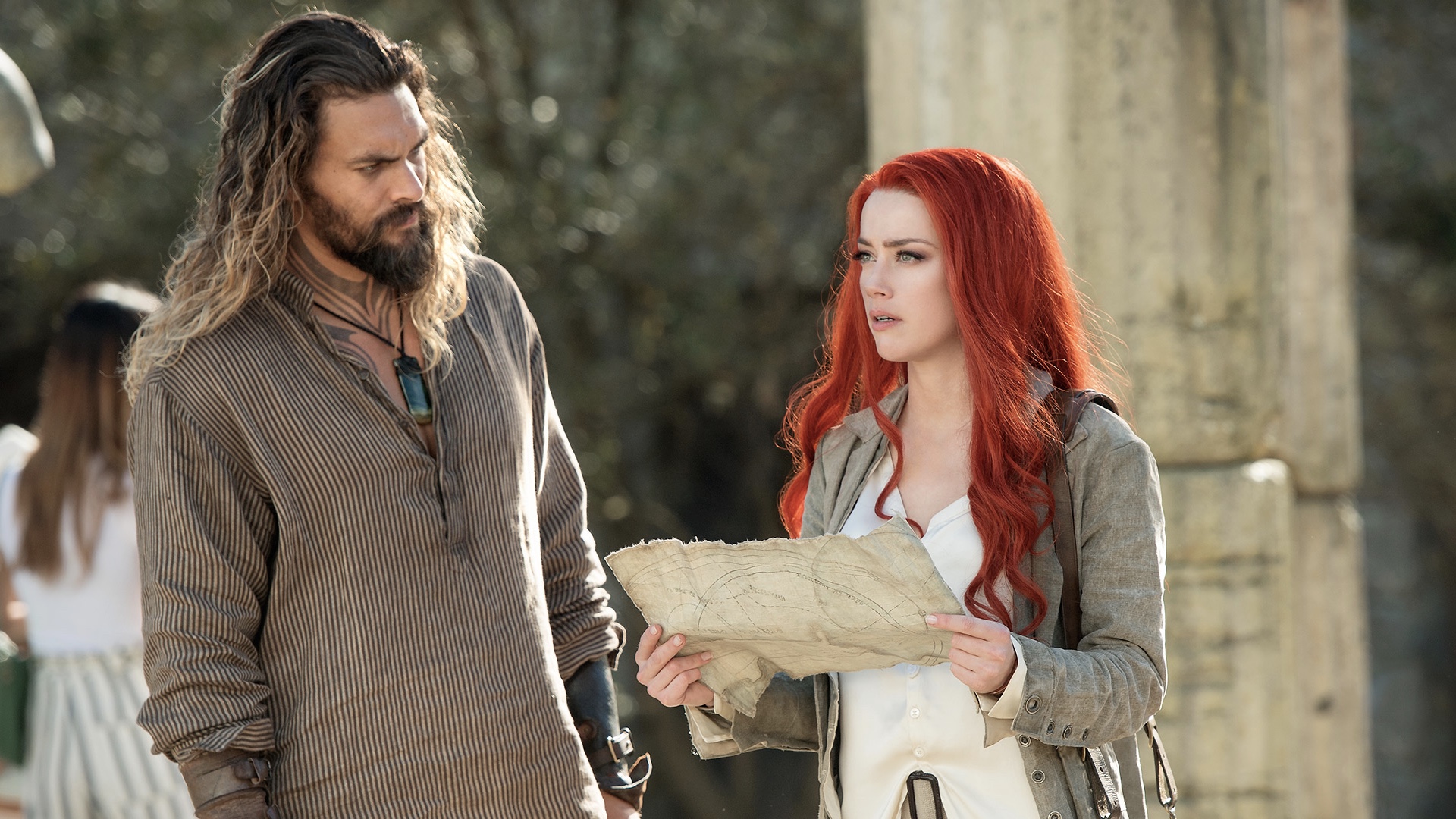The first time I watched Phantom of the Opera (2004) was in seventh grade choir class, the week before summer vacation. I couldn’t hear a word of it over everyone’s conversations, but it looked so beautiful. The candle-lit hidden passages, the soft and snowy cemetery, and the grand masquerade hall were all so wonderful above another dreary day of junior high. The theme would crescendo every once in a while and I’d change seats to try and get closer to the board and hear more of it. I got out of school a week later and the film buried itself into my subconscious. Continue reading “Retrospective: ‘The Phantom of The Opera’ Is Shamelessly Over The Top”
Review: ‘Midway’ Fails to Capture Anything Besides Mediocrity
History often makes for the best stories, giving us the true tales of human magnificence and maleficence alike. Unfortunately, Director Roland Emmerich and writer Wes Tooke’s Midway fails to capture any of the gravity of the pivotal real events. Aside from literally opening the film with text telling the viewer, “This is important,” the choppy pacing and weak script prevent anything from really being conveyed. Filled with unnecessary scenes and plots, it is a far cry from the fun days of Emmerich’s Stargate and Independence Day. Tooke’s inexperience on the silver screen is unfortunately apparent as well, having previously only written a few episodes of television, which could be pointed to as the culprit of the jarring pacing.
During my screening in a largely empty theater, there was one rather vocal woman and her husband sitting in the row behind me. While initially, I thought it would ruin my experience, I quickly realized she was the perfect bellwether for the average audience, perhaps unaware of the history behind the events. Her constant exclaiming of “what, why, and how?” made it clear to me it wasn’t just I who was taken aback by the direction. Midway plays like a children’s storybook, with loosely connected events with a few words and some pretty pictures.

Midway could be classified as an ensemble movie, although it’s unclear if that was the intent, with an all-star cast portraying all largely real individuals who took part in the battles depicted. The shame of it is that Midway takes real events and makes them feel completely fictionalized. With a group of Hollywood a-listers overacting a sub-par script, combined with the shockingly mediocre special effects, it feels like something from a Call of Duty game ten years ago. That being said, the movie is still somewhat competent, with some actors giving it their best for what they got. Ed Skrein and Patrick Wilson, in particular, are certainly likable delivering fine performances as what I would say are the two main leads. They portray ‘Dick Best’ and ‘Edwin Layton’ respectively, and as trope-filled and clichéd they may be, both are enjoyable enough to watch.
Part of Midway‘s problem lies in the sheer volume of characters, making it hard to become attached to any of them, especially when most of the time you can’t tell who is who. The giant computer-generated battle scenes, while enjoyable in the same way the Fast and Furious is, do not exactly lend themselves to differentiating the characters you’re seeing. Nick Jonas, for example, a recognizable face who received heavy advertising, has less than ten minutes of screen time. A character like that just seems like a waste to me, and he isn’t the only one. Woody Harrelson, Luke Evans, Dennis Quaid, Mandy Moore, Luke Kleintank, Aaron Eckhart, and the whole rest of the cast are relegated to twiddling their thumbs on the sidelines. Instead of focusing on a select few to lead us through a chain of events, you get a bevy of characters with little to nothing to do in various jumbled and disjointed scenarios.
On paper, the script deals with the historicity rather well, not comically depicting the Japanese as cartoonish villains or muddying the harsh realities of World War II. They also took the step to dedicate the movie to all those who served and died in the conflict, no matter the side, which is a rather positive gesture. However, when put on screen, it is rather obtuse, and while I can see the intent, it is entirely lost in translation.
2.5/5 STARS
Review: ‘Aquaman’ is a Hot, Wet Mess
I never had high hopes for Aquaman. The very first trailers revealed the movie to be the eye-rollingly corny mess it ended up being. Though their choice of Jason Momoa to play Arthur, the titular superhero, was a good one — he was certainly one of the best parts of the movie — in almost every other respect, the movie let its viewers down. It is an unfocused, unfunny, uninventive superhero flick, and it is not worth seeing in theaters (or possibly at all).
Despite the massive critical and box office success of Wonder Woman last year, DC did not seem to take to heart the idea that superhero movies should be more than just spectacle. As a consequence, Aquaman is two hours of fights and explosions (literally five discrete times a scene is interrupted by an explosion coming through a wall) with a trite “chosen one” storyline and a massive underwater war that ultimately don’t add up to an engaging plot to string the fight sequences together. One of the antagonists, Black Manta (Yahya Abdul-Mateen II), is laughably campy and completely irrelevant, and the other, Arthur’s half-brother King Orm (Patrick Wilson), is so under-developed that the emotional conflict that supposedly drives his every action seems completely unbelievable.

In fact, that is one of the movie’s central sins: underdevelopment of both characters and plot. The movie seems to assume that the audience has some familiarity with Aquaman already, whether from 2017’s Justice League or perhaps just from the comics, and so Arthur, too, is already seemingly familiar with his Atlantean heritage and powers. Skipping out on an origin story for someone like Spider-Man, as in Spider-Man: Into the Spider-Verse, is understandable — we all know how that story goes. But when it’s omitted from the story of a less familiar superhero like Aquaman, you lose out on that incredible magic of discovery that can provide for a story that endears the hero to the audience while also developing his character. As it is, the only real personality Arthur has is the charisma Momoa brings to the role. He, along with characters like Mera (Amber Heard), Vulko (Willem Dafoe), and Atlanna (Nicole Kidman) — who was completely wasted on this movie — are criminally underdeveloped, and their relationships, too, are cheesy and forced.
The plot, meanwhile, goes much too big too fast. It tries to incorporate too many elements — King Orm’s war, Atlanna’s storyline, Black Manta’s quest for revenge, Arthur and Mera’s quest for the lost trident of Atlan, their romance, and the conflict between King Orm and Arthur, among others. As a result, each storyline is not given enough attention and all of them feel vague and inconsequential. The romance between Arthur and Mera is particularly egregious.

The movie’s not all bad. Its visuals are stunning at times, especially the scene where Arthur and Mera use flares to ward off the Trench with a red flare. The underwater combat is admittedly pretty sick, especially when big sea creatures are involved. And Momoa is charming and occasionally funny when the overall poor writing permits. They even managed to make him look cool in his silly green and gold outfit. But these elements are not enough to save the movie.
Ultimately, though this will undoubtedly be another box office hit for DC if the opening weekend numbers are anything to go by, it is another creative stumble. With Disney’s Marvel films still going strong and Sony’s recent successes with Spider-Man: Into the Spider-Verse and Venom, DC is still struggling to find a successful formula for superhero movies that are both spectacular visually and engaging narratively. And Aquaman is certainly not the solution. Better luck next time with Shazam, DC.
Score: 2/5


